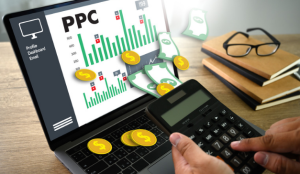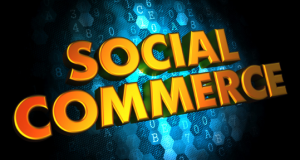Table of Contents
Hospitality is about creating connections and building customer loyalty, and also a case of “get more heads in beds” with hotels and guest houses, or “fill your seats and tables” with pubs and restaurants. However, driving sales has been tough for the hospitality market, with forced closures, rising costs and tighter regulations. As people start to venture out, socialise, and travel again, it’s important to consider how to harness the best hospitality marketing opportunities for your business.
There’s much more to consider moving into 2022, with an increased emphasis on tapping into where your customers hang out digitally, the increase in social commerce, and how to build brand awareness when there’s so much competition, especially in bigger cities where there’s more choice.
Here we’ll cover our hot tips to boost your hospitality marketing efforts in 2022 with takeaways you can apply to your business.
1. Using Social Media/Messaging for effective communication

You need to use SEO like a pro, and we mean Google in the main. According to the Search Engine Market Share site, Google accounts for almost 92% of the search engine market, so create SEO-rich content for your website and direct booking channels. Editing your website, and the pages within it, it’ll make it easier for Google and therefore, your customers, to find you. Use primary and secondary targeted keywords and meta descriptions to help that process. And, don’t forget that customers want a problem-free transaction, so after driving potential customers to your website, do ensure their click-through experience is seamless. Booking a room, or a table. should be a quick, simple process.
Hospitality mobile messaging is an effective B2C marketing and promotional tool to keep customers engaged. As a quick and convenient way of reaching people, it’s also not that expensive. A hotel can make use of direct messaging to send up-to-date information about on-site events, restaurant options, facility features, resort maps and more. For a pub or restaurant, a digital menu can be updated and sent out, (also more sustainable/cheaper/adaptable than printed versions), and events can be promoted. A loyalty program to inform repeat customers about exclusive offers and on-site or local events also works well with messaging and engenders customer loyalty.
2. Pay per Click (PPC) and AdWords

A good solid pay per click campaign has many benefits that enable you to drive an unlimited volume of targeted traffic, from the moment your advert gets published. By choosing specific keywords, and then bidding for placement of your adverts for those particular keywords, your advertising is highly targeted, limited to only those customers who are actively and deliberately using those search terms.
Of course, you need to be clear about your keywords relating directly to what you’re offering. Google Ads helps by providing choices for an exact match, broad match, phrase match and negative keyword. With an exact match, your advert will display the precise search phrase, exactly as it’s typed, and nothing else. For example, “Bristol hotel” can only match “Bristol hotel” and not “Bristol guesthouse”.
An agency can best assist in testing different strategies, helping you to reach more targeted viewers, improve your conversion ratio, lower your per-click cost, and increase your ROI.
3. Local Marketing – Google my Business
Google My Business (GMB) is a free option that local businesses should utilise to attract potential customers who live or plan to visit near to your venue. As a starter, the listing can help your business rank higher on search engines, but it also gives potential customers easy access to your name, address, phone number, website, and hours of operation.
GMB optimisation services help online visibility and increase exposure in local search results (local pack). Not only that, it can protect your reputation from spam or fake reviews and listings that can hurt ratings, lead to penalties from Google, and even get content removed altogether!
A digital marketing agency that offers optimisation services will help build Google rankings over time for highly profitable keywords and overall web traffic.
4. Social Commerce

Social commerce is a way of allowing products or services to be sold directly through social media platforms rather than customers being redirected to a website to purchase (eCommerce). As a result, it’s a no brainer to encompass a social commerce strategy to sell where your customers are.
The hospitality industry is, by nature, a very personal, very human business so this could work in several ways. Here are just a few examples.
- Showing off meals in a video menu adds a visual appeal and a click to purchase option would link directly to your purchase page.
- For hotels, potential buyers want to know the reality of the product/service and its fit for purpose, so online review videos will matter. Sharing positive video reviews can help build a more interactive experience, especially with a “click to book” room option.
- Livestreaming also makes a potential customer “be in the moment” and feel as though they are on holiday, as an example. As social commerce relies on the flexibility of mindset, and a buy now mentality, you can tap into the “here and now” experience as part of your strategy. You can see some examples here.
Finally, you’re seeking to create a positive, unforgettable experience for your customer base from start to finish, and reap the benefits of happier customers. Positioning pays to keep a finger on the pulse of what’s happening with your target market as this will help you to take advantage of emerging marketing practices. Don’t be afraid to explore different marketing options and then zoom in on those that deliver the best ROI.


